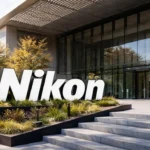Key Points
- ESIA urges the EU to implement a “Chips Act 2.0” with quicker aid distribution and fewer export restrictions.
- The group advocates appointing a dedicated Chips Envoy to oversee semiconductor policies.
- The first EU Chips Act aimed to boost Europe’s global chip market share but faced challenges in meeting its goals.
- Significant projects include TSMC’s €10 billion plant in Dresden and Intel’s €30 billion project in Magdeburg, the latter facing delays.
Europe’s leading computer chip industry group, the European Semiconductor Industry Association (ESIA), has called on the European Union to expedite support for the semiconductor sector by introducing a revamped “Chips Act 2.0” and appointing a dedicated envoy to champion the industry. In a statement released on Monday, ESIA emphasized the need for faster aid disbursement, reduced export restrictions, and a strategic focus on areas where European companies have existing strengths.
The group, representing major industry players like Infineon, STMicroelectronics, NXP, and ASML and research institutions such as IMEC, Fraunhofer, and CEA-Leti, highlighted the importance of a “Chips Envoy” to oversee the overall semiconductor industrial policy. They argue that this role is crucial to streamlining efforts and ensuring that the EU’s approach to chip policy is cohesive and efficient.
The ESIA’s push for a new support package follows the initial EU Chips Act, launched in April 2023, which aimed to increase Europe’s share of the global chip market to 20% by 2030 with a €43 billion subsidy plan. Despite this ambitious goal, a recent review by the German think-tank Interface suggests that Europe may not be on track, noting that the region has not achieved a 15% market share in the past 40 years. However, the first Chips Act did succeed in drawing significant political attention to the industry’s needs.
Key initiatives under the initial Chips Act included a €10 billion plant by Taiwan’s TSMC in Dresden and a planned €30 billion project by Intel in Magdeburg, Germany. However, Intel’s ongoing business challenges have delayed the Magdeburg project, which has yet to receive EU approval for financial aid, raising concerns about its future.
Regarding export policy, ESIA acknowledged the necessity of safeguarding technology and maintaining security but advocated for a more positive approach. Economic security should be bolstered through support and incentives rather than restrictive measures.
This sentiment comes as ASML faces ongoing export limitations to China, which are aligned with EU and U.S. efforts to curb Chinese technological and military advancements. Dutch Prime Minister Dick Schoof recently stated that the Netherlands would consider ASML’s economic interests when implementing further export restrictions.




